5 unexpected ways you can catch pneumonia
Throwing up and poor oral hygiene are two surprising ways to pick up a lung infection.
Updated on October 3, 2024
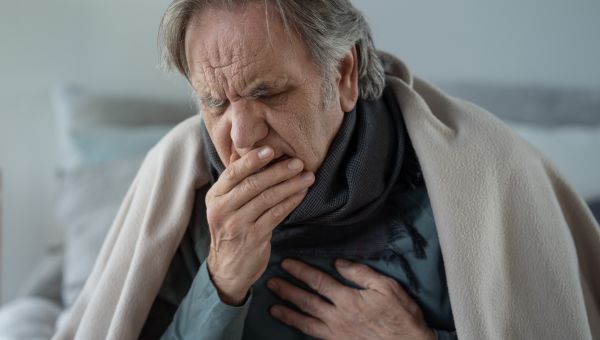
Together with the flu, pneumonia is a top cause of death in the United States, according to the Centers of Disease Control and Prevention. Part of what makes pneumonia so lethal is that it isn’t just one disease. Instead, it’s a general term for infections in the lung.
“Technically, pneumonia is an inflamed lung, and the inflammation comes from an infection,” says Thomas… Show More
Together with the flu, pneumonia is a top cause of death in the United States, according to the Centers of Disease Control and Prevention. Part of what makes pneumonia so lethal is that it isn’t just one disease. Instead, it’s a general term for infections in the lung.
“Technically, pneumonia is an inflamed lung, and the inflammation comes from an infection,” says Thomas Grookett, MD, a pulmonologist in Willingboro, New Jersey.
Since pneumonia can be caused by bacteria, viruses, and other airborne hazards, it’s tough to avoid. “The lungs are one of the only vital organs exposed to the environment,” says Dr. Grookett. “Everything else—the heart, the brain, everything—is enclosed in your body. That’s why lung infections are always challenging the immune system.”
Pneumonia puts hundreds of thousands Americans in the hospital every year, and more than 45,000—mostly people over age 65—will die from the illness annually. The Pneumococcus bacterium and a bacterium called Haemophilus influenzae are two of the most common causes, but far from the only ones. Here are some of the more surprising ways to develop the condition.
Show Less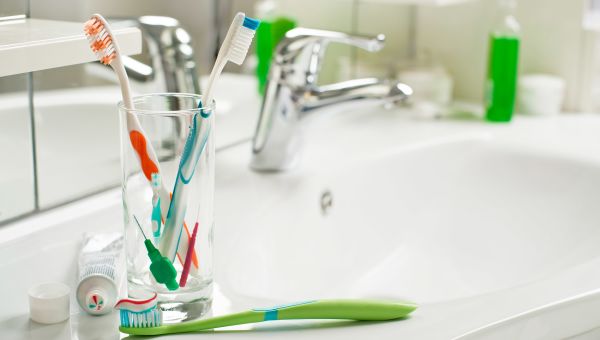
Mistreating your teeth
You should brush and floss for more than just a beautiful set of pearly whites. Poor oral hygiene is associated with an increased risk of pneumonia. That’s because an unhealthy mouth has more bacteria.
“The more bacteria in the mouth, the higher the risk of pneumonia,” says Grookett. These germs… Show More
You should brush and floss for more than just a beautiful set of pearly whites. Poor oral hygiene is associated with an increased risk of pneumonia. That’s because an unhealthy mouth has more bacteria.
“The more bacteria in the mouth, the higher the risk of pneumonia,” says Grookett. These germs hitch a ride on drops of saliva that get inhaled. “To some degree everyone has bacteria in the lungs, but you have mechanisms like cilia and mucus to clear it out,” says Grookett. “But a large amount of bacteria getting into the lungs will increase your risk of pneumonia.”
Taking care of your oral hygiene could help. For example, one study of more than 2,100 nursing home residents published in 2020 in JAMA Network Open found that pneumonia cases dropped significantly the first year they participated in a specialized oral care program.
Show Less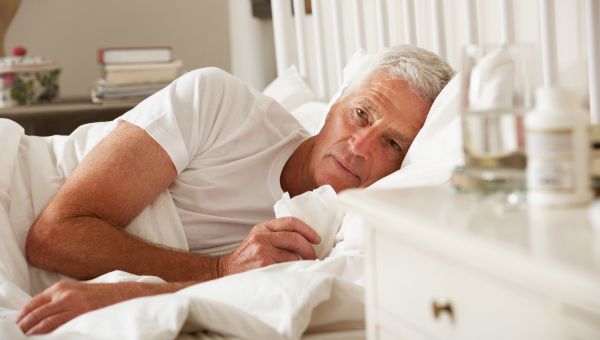
Problems swallowing
More people with Parkinson’s disease—a debilitating brain condition that impairs movement—die of pneumonia than any other cause. That’s because of difficulty swallowing, a condition known as dysphagia. This makes it easier for foreign particles like food or saliva to end up in the lungs instead of… Show More
More people with Parkinson’s disease—a debilitating brain condition that impairs movement—die of pneumonia than any other cause. That’s because of difficulty swallowing, a condition known as dysphagia. This makes it easier for foreign particles like food or saliva to end up in the lungs instead of your belly. The bacteria that’s on the foreign particles can then cause pneumonia, according to Grookett.
It’s not just Parkinson’s that can cause this type of pneumonia. “Anyone that has dysphagia is at increased risk for pneumonia,” Grookett says. Other conditions where dysphagia is a risk include dementia, cerebral palsy, gastroesophageal reflux disease, stroke, certain head and neck cancers, and head or spinal cord injury.
Show Less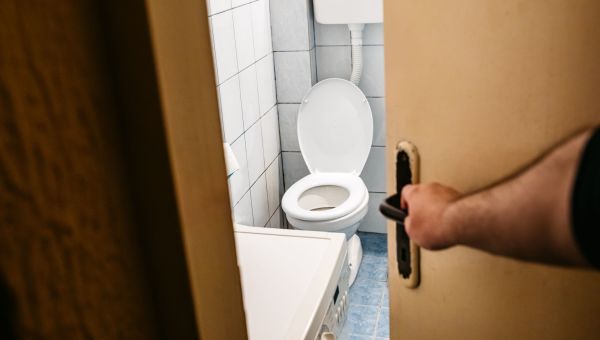
Throwing up
Vomiting can cause either pneumonia or pneumonitis, which is similar to pneumonia. “Pneumonitis is just inflamed lung, while pneumonia is an infection,” says Grookett. Chemical pneumonitis happens when you inhale something that irritates the lungs. Gastric acid is the most common cause of… Show More
Vomiting can cause either pneumonia or pneumonitis, which is similar to pneumonia. “Pneumonitis is just inflamed lung, while pneumonia is an infection,” says Grookett. Chemical pneumonitis happens when you inhale something that irritates the lungs. Gastric acid is the most common cause of pneumonitis, and the most common reason for gastric acid in the lungs is throwing up.
“You’ll have a huge vomiting event, the stomach contents come up and some of that can get into the lungs,” says Grookett. “Then you have very acidic fluid in the lungs and you can get an intense inflammatory response.”
Mild cases usually go away pretty quickly, but more serious bouts may require oxygen therapy or even temporary use of a breathing machine. Severe cases can cause respiratory failure and may be fatal.
Show Less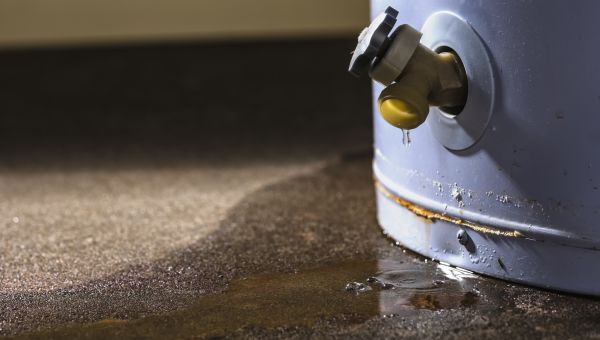
Contaminated water
Bacteria love warm, wet places—and some of the warmest and wettest are large, poorly maintained building water systems. They could be contaminated by the Legionella bacterium, which causes a form of pneumonia called Legionnaire’s disease. Other possible sources of Legionella include:
- Hot tubs … Show More
Bacteria love warm, wet places—and some of the warmest and wettest are large, poorly maintained building water systems. They could be contaminated by the Legionella bacterium, which causes a form of pneumonia called Legionnaire’s disease. Other possible sources of Legionella include:
- Hot tubs
- Saunas
- Cooling towers for large air conditioning systems
- Commercial or large residential hot water heaters
- Decorative fountains
Your home and car air conditioners don’t use water, so you’re not a risk for Legionnaire’s from them.
Legionnaire’s disease does not usually pass between humans, but is instead picked up by inhaling contaminated water droplets. Though rare, outbreaks can and do occur. Overall, Legionnaire’s is fatal in about 10 percent of cases, and is deadlier for smokers, older people, and those who are already sick or have weak immune systems.
Show Less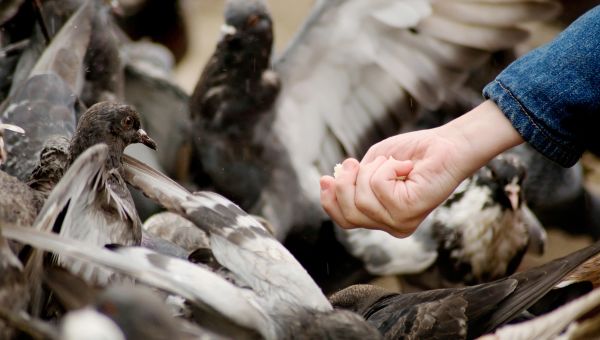
Fungus
It’s not just bacteria and viruses that cause pneumonia. In rare cases, fungi can also give you a lung infection. “People who develop fungal pneumonia usually have weak immune systems: organ transplant recipients, alcoholics, people with diabetes,” says Grookett.
A number of fungi can cause… Show More
It’s not just bacteria and viruses that cause pneumonia. In rare cases, fungi can also give you a lung infection. “People who develop fungal pneumonia usually have weak immune systems: organ transplant recipients, alcoholics, people with diabetes,” says Grookett.
A number of fungi can cause pneumonia. Fungus is found in soil, mold, and animal droppings, for example, and anyone who works near bird, bat, or rodent poop may be at risk to inhale a mass of fungal spores.
“In general the body does a really good job of clearing fungi,” says Grookett. Some cases will go away on their own, and for others, there are antifungal medications.
Show Less
Center for Disease Control and Prevention. National Center for Health Statistics: Leading Causes of Death. Page last reviewed September 6, 2022.
Center for Disease Control and Prevention. National Center for Health Statistics: Pneumonia. Page last reviewed September 6, 2022.
American Lung Association. Trends in Pneumonia and Influenza Morbidity and Mortality. November 2015.
World Health Association. Pneumonia in children. November 11, 2022.
Son M, Jo S, et al. Association between oral health and incidence of pneumonia: a population-based cohort study from Korea. Scientific Reports. 10, Article number: 9576 (2020).
U.S. Department of Veterans Affairs. Oral hygiene to fight pneumonia. May 7, 2019.
Zimmerman S, Sloane PD, et al. Effectiveness of a Mouth Care Program Provided by Nursing Home Staff vs Standard Care on Reducing Pneumonia Incidence: A Cluster Randomized Trial. JAMA Netw Open. 2020 Jun 1;3(6).
Zimmerman S, Sloane PD, Ward K, et al. Effectiveness of a Mouth Care Program Provided by Nursing Home Staff vs Standard Care on Reducing Pneumonia Incidence: A Cluster Randomized Trial. JAMA Netw Open. 2020;3(6):e204321.
Mayo Clinic. Oral health: A window to your overall health. October 28, 2021.
Dickson RP, Erb-Downward JR, et al. Bacterial Topography of the Healthy Human Lower Respiratory Tract. mBio. 2017. 8:1.
Science Daily. New study shows how bacteria get into the lungs. February 21, 2017.
Won JH, Byun SJ, et al. Risk and mortality of aspiration pneumonia in Parkinson’s disease: a nationwide database study. Scientific Reports. 11, Article number: 6597 (2021).
American College of Gastroenterology. Dysphagia. Accessed October 3, 2024.
Mayo Clinic. Dysphagia. September 20, 2022.
MedlinePlus. Swallowing Disorders. Last updated August 31, 2016.
Payne M & Morley JE. Dysphagia, Dementia and Frailty. The journal of nutrition, health & aging. 2018. Volume 22, pages562–565.
Merck Manual Consumer Version. Aspiration Pneumonia and Chemical Pneumonitis. Medically reviewed September 2022.
MedlinePlus. Chemical pneumonitis. Reviewed August 3, 2020.
Centers for Disease Control and Prevention. Legionella (Legionnaires' Disease and Pontiac Fever): Causes, How it Spreads, and People at Increased Risk. Page last reviewed March 25, 2021.
Centers for Disease Control and Prevention. Legionella (Legionnaires' Disease and Pontiac Fever): Prevention. Page last reviewed January 3, 2022.
Centers for Disease Control and Prevention. Legionella (Legionnaires' Disease and Pontiac Fever): Outbreaks. Page last reviewed March 25, 2021.
Centers for Disease Control and Prevention. Legionella (Legionnaires' Disease and Pontiac Fever): Diagnosis, Treatment, and Complications. Page last reviewed March 25, 2021.
MedlinePlus. Legionnaires’ Disease. Last updated August 2, 2018.
Li Z, Lu G, and Meng G. Pathogenic Fungal Infection in the Lung. Frontiers in Immunology. July 3, 2019.
American Lung Association. What Causes Pneumonia? Page last updated November 17, 2022.
MedlinePlus. Pneumonia. Last updated June 20, 2021.
More On


video

slideshow


video


video
